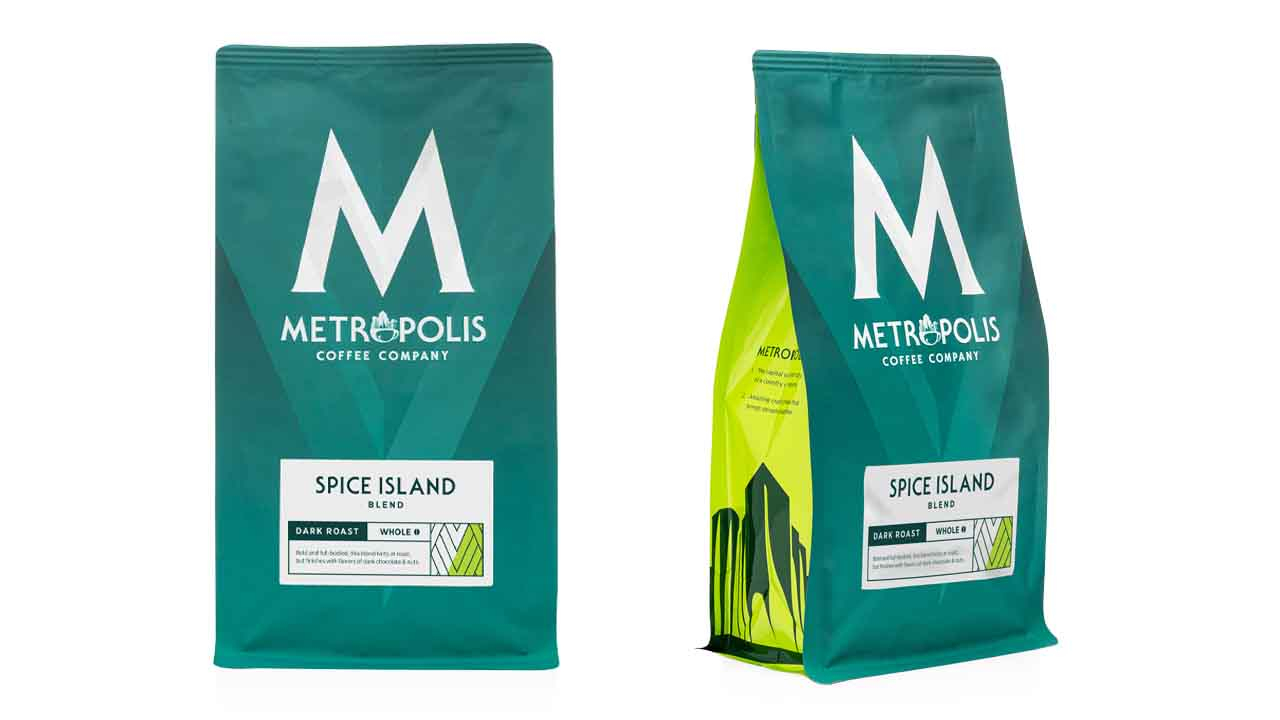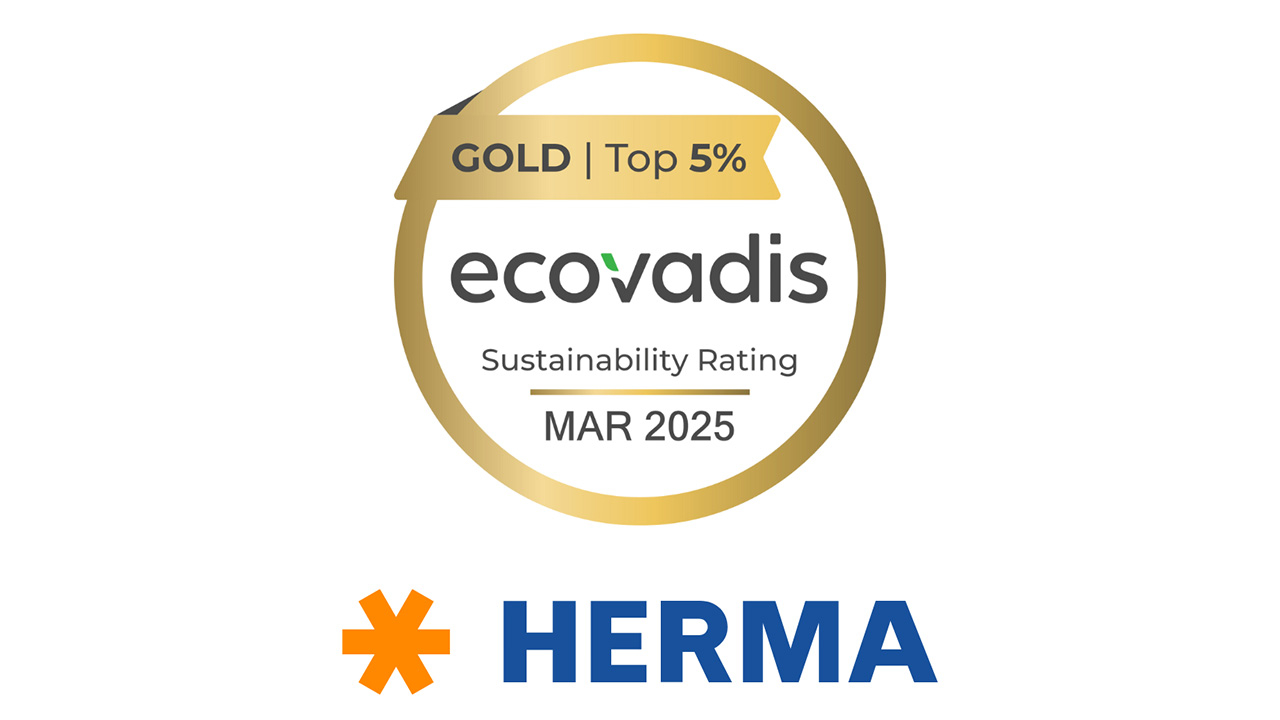Inside Metropolis Coffee’s packaging process
Chicago-based brand Metropolis Coffee Company’s innovative packaging strategies balance storytelling and flexibility while actively pursuing sustainable practices.

Metropolis Coffee Company, a family-owned business founded by Tony and Jeff Dreyfuss, has been in the specialty coffee industry for over 21 years. Known for its high quality, the brand emphasizes traceable sourcing to support farmers while bringing organic beans to coffee lovers across Illinois.
Metropolis has successfully expanded into Costco and is now available in almost every major retail chain in the Midwest.
Known for its consistency, the company ensures the quality of its coffee year-round through careful curation under the watchful eye of its expert roasters.
Metropolis roasts approximately 1000,000 pounds of coffee annually at its 18,000 sqft roastery along the North Branch of the Chicago River. The company also operates a flagship café in Edgewater, a vibrant neighborhood on Chicago’s northeast side. While the café has remained a community hub for over 20 years, the heart of Metropolis’ business lies in its wholesale, private label and roasting operations.
Revamped packaging
During the COVID-19 pandemic, Metropolis Coffee faced significant challenges, with an 80 percent decline in business as Chicago’s hospitality sector and offices shut down.
Despite these setbacks, the company used the downtime to reimagine its packaging and storytelling. These efforts helped the business recover and boost growth by 20 percent compared to pre-pandemic levels.
‘Grocery doubled for us during COVID because everybody was buying their coffee to drink at home,’ says Anne Djerai, CEO of Metropolis Coffee Company. ‘And our old packaging was not standing out on the shelf. The packaging had muted colors, and the lettering was tiny.’
Recognizing the need for a more substantial shelf presence, branding studio EightySeven, led by brand director and founder Maxwell Billings, revamped the brand’s story, its packaging and presentation to align with the business’s larger goals and stand out in a new and exciting way.
‘We used our storytelling expertise and understanding of consumer behavior to design packaging that would stand out on the shelf,’ says Billings. ‘Working directly with the leadership team, we quickly refined key elements of the brand to establish a new presentation for Metropolis, starting with color.’
Compostable materials need to be designed in a specific way to break down properly. However, when you fill the bag with coffee that has a certain weight, it can cause the material to weaken and break
EightySeven analyzed the shelf to understand the existing color environment on the shelf and explored how the brand could use contrast to stand out. The designers strategized with color while emphasizing the ‘M’ logo on the pouches as a unifying mark for Metropolis. The team reimagined existing brand elements to be more consistent and easily recognizable in the aisle, making it easier to spot Metropolis products.
Djerai emphasizes that specialty coffee is a luxury, and customers are willing to pay more for a premium product. Packaging must reflect that value with thoughtful details that make it feel like a gift — something that stands out, whether it’s a unique logo, intricate design or striking color.
The redesign
Metropolis embraces its Chicago roots by incorporating the city’s identity into its branding. The back of the bags features a ‘Proudly Roasted in Chicago’ sign-off with four Chicago stars, instantly recognizable by locals.
‘Coming to the Metropolis roastery, you can feel how much creativity flows through this team and organization,’ adds Billings.
‘We wanted to bring that to life through their packaging experience. By weaving storytelling and design into every part of the package, customers uncover different layers, from the meaning behind Metropolis to key messaging, coming together to create an immersive experience.’
The designers finished off with a subtle surprise on the bottom of the pouch, a brand-focused story reintroducing Metropolis to craft coffee lovers.
Metropolis employs several techniques to ensure quality from roastery to shelf, including nitro flushing its coffee. Since the coffee will not be used immediately, especially on a grocery shelf with an extended shelf life, the pouches feature a one-way valve to push out the oxygen using nitrogen. The coffee naturally releases gas after roasting, therefore without the valve, the bag could explode.
Currently, the brand uses metallized polyethylene with a heat seal at the top of the bag and a reusable zipper, allowing customers to reseal the bags after opening to keep the coffee as fresh as possible.
In the packaging space, these creative choices, like a foil or fi nish paired with a story and vision can instantly give people a feeling for the product
‘Previously, brands used EVOH for its cost-effectiveness and thicker structure, but during COVID, supply issues with plastics plants and aluminum mines forced a material shift. Now, we use a different type of metallized polyethylene, which has a foil-like appearance but is less dense.
This helps maintain the critical oxygen barrier necessary for preserving freshness. When coffee is exposed to air, it goes stale, which impacts the flavor. This is specifically true for ground coffee, so the packaging has to have a barrier to keep it fresh,’ Djerai explains.
The pouches feature labels categorizing the brand’s products into 12 to 15 different roast blends, making it easy for customers to tell them apart. The labels provided flexibility, allowing all coffees to fit into the light or dark roast categories.
Metropolis also supports its wholesale customers with lower minimum order quantities (MOQs) than most specialty roasters. When a customer cannot meet the MOQ for custom bags, Metropolis works directly with them to find practical alternatives, such as using stock bags or simplified options.
Additionally, the company leaned heavily into the single-serve coffee market, launching innovative projects such as the first compostable espresso capsules in North America. The new packaging design also prioritized flexibility to accommodate collaborations with other brands while maintaining consistency in design across packaging formats. These efforts positioned Metropolis for continued growth and new opportunities in the post-COVID market.
The brand’s packaging is currently produced in Korea and China, while the espresso capsules are made in Germany.
Compostable packaging
Metropolis is at the forefront of sustainable practices, such as using compostable material in its packaging. However, Djerai notes some current limitations to applying those materials across its entire product line, specifically with whole bean coffee.
‘The challenge is ensuring the bag material is strong enough to handle the beans’ weight. Compostable materials need to be designed in a specific way to break down easily. But, when the bag is filled with coffee, the weight can weaken or even break the material,’ she says.
‘We can use compostable materials for smaller quantities and formats, which is why we offer a lot of fraction packs made from compostable materials. But when it comes to larger packages, especially those over a couple of pounds, that’s where we face challenges. We’ll switch when we identify a solution but, we use a metallized polyethylene material for now.’
The coffee pouches can’t be recycled because they combine metallized and plastic properties, which must be separated for recycling.
‘Another challange is that, particularly in Chicago, there are no city-funded recycling programs — everything ends up in the landfill unless you have a private recycling service,’ Djerai adds.
However, the brand is heavily involved in offsetting these challenges through other sustainable means, such as using compostable materials wherever possible, especially in its espresso capsules.
Traditional coffee pods made with plastic or aluminum are challenging to recycle. To reduce its environmental footprint, Metropolis espresso capsules are commercially compostable and certified by both BPI and by the Compost Manufacturing Alliance (CMA), meaning they’ll be accepted at any commercial compost facility.
‘Regarding the Metropolis capsule line, every aspect of the packaging is designed with sustainability in mind. While some brands use more extravagant techniques, Metropolis has developed a technology where not only is the capsule home compostable or commercially compostable, but the box they come in is also made from recycled cardboard. As a brand, it’s great to see Metropolis going above and beyond to make these sustainable choices,’ Billings says.
Designer’s perspective
From a design perspective, Billings says that the production technique can be a tool when telling a story on a shelf.
‘When brands are intentional, it shows. Bringing different types of finishes and textures to the packaging experience is essential. It’s another sensory way to connect with people.’
He explains: ‘With the Metropolis packaging system, we created touches of contrasting finishes to grab attention. Pairing a soft touch with the spot gloss on the ‘M’ and the paneling on the sides creates accents that catch your interest. In the packaging space, these creative choices can instantly give people a feeling for the product.
‘What excites me technology-wise is anything that can introduce new finishes and textures, however subtle, that can add up to a unique experience. Let’s say you’re a food or beverage brand focused on the golfer’s lifestyle. Where can you introduce textures of a dimpled golf ball, leather grip or other sensory parts of the experience to tie with your product? Those subtle storytelling opportunities are where brands can connect with people and separate themselves from the competition,’ he adds.
In an industry where sustainability has become standard practice, Metropolis Coffee continues to grind away as it seeks new ways to integrate the latest compostable materials into its offerings. This aligns with the growing discussion around the coffee industry’s impact and the demand by consumers for responsible, eco-friendly packaging without compromising the quality or performance of its products.
Stay up to date
Subscribe to the free Label News newsletter and receive the latest content every week. We'll never share your email address.


